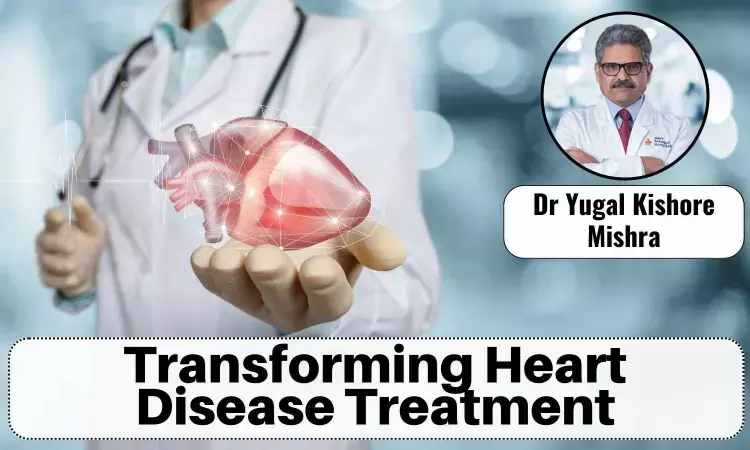- Home
- Medical news & Guidelines
- Anesthesiology
- Cardiology and CTVS
- Critical Care
- Dentistry
- Dermatology
- Diabetes and Endocrinology
- ENT
- Gastroenterology
- Medicine
- Nephrology
- Neurology
- Obstretics-Gynaecology
- Oncology
- Ophthalmology
- Orthopaedics
- Pediatrics-Neonatology
- Psychiatry
- Pulmonology
- Radiology
- Surgery
- Urology
- Laboratory Medicine
- Diet
- Nursing
- Paramedical
- Physiotherapy
- Health news
- Fact Check
- Bone Health Fact Check
- Brain Health Fact Check
- Cancer Related Fact Check
- Child Care Fact Check
- Dental and oral health fact check
- Diabetes and metabolic health fact check
- Diet and Nutrition Fact Check
- Eye and ENT Care Fact Check
- Fitness fact check
- Gut health fact check
- Heart health fact check
- Kidney health fact check
- Medical education fact check
- Men's health fact check
- Respiratory fact check
- Skin and hair care fact check
- Vaccine and Immunization fact check
- Women's health fact check
- AYUSH
- State News
- Andaman and Nicobar Islands
- Andhra Pradesh
- Arunachal Pradesh
- Assam
- Bihar
- Chandigarh
- Chattisgarh
- Dadra and Nagar Haveli
- Daman and Diu
- Delhi
- Goa
- Gujarat
- Haryana
- Himachal Pradesh
- Jammu & Kashmir
- Jharkhand
- Karnataka
- Kerala
- Ladakh
- Lakshadweep
- Madhya Pradesh
- Maharashtra
- Manipur
- Meghalaya
- Mizoram
- Nagaland
- Odisha
- Puducherry
- Punjab
- Rajasthan
- Sikkim
- Tamil Nadu
- Telangana
- Tripura
- Uttar Pradesh
- Uttrakhand
- West Bengal
- Medical Education
- Industry
Transforming Heart Disease Treatment: Exploring Technological Advancements In Cardiovascular Care - Dr Yugal Kishore Mishra

Innovations in technology have transformed the field of cardiovascular care, providing innovative techniques for the treatment of heart disease. In recent years, new technologies have changed the landscape of cardiac interventions. These cutting-edge technologies have the potential to improve patient outcomes and revolutionise the way cardiac disease is managed.
Robotic Coronary Artery Bypass Grafting (CABG):
This procedure is a minimally invasive surgical method that bypasses blocked coronary arteries. In addition to providing benefits including less trauma, smaller incisions, shorter hospital stays, and quicker recovery times, this method enables surgeons to perform their procedures with greater precision. Robotic CABG has the potential to transform conventional bypass operations by giving patients a less invasive choice and enhancing surgical results overall.
Transcatheter Aortic Valve Implantation (TAVI):
Patients with severe aortic valve stenosis who are classified as high-risk for open cardiac surgery can benefit from the innovative TAVI approach. Using a catheter-based technique, a new valve is inserted inside the old, constricted valve. TAVI has a number of advantages, including less trauma, a quicker recovery, and better results for individuals who might not be able to withstand standard surgery. This technique has changed how aortic valve disease is treated and given patients more options.
MitraClip for Mitral Valve Repair:
Mitral valve regurgitation is a condition where the valve does not shut completely, causing blood to flow backwards. The MitraClip system is a cutting-edge medical device designed to treat this condition. The valve leaflets are joined by a tiny clip during this minimally invasive surgery, which reduces reflux and enhances heart performance. By providing a less intrusive technique with quicker recovery times than open heart surgery, the MitraClip provides high-risk patients with an alternative.
Percutaneous Ventricular Assist Devices (VADs):
Advanced medical technology called percutaneous ventricular assist devices, often known as miniaturised heart pumps, are used to sustain a weak heart in people with severe heart failure. These implants can be placed percutaneously and offer short-term artificial circulatory assistance while the heart recovers or a heart transplant is on the horizon. The use of percutaneous VADs has revolutionised the treatment of seriously ill heart failure patients by providing a pathway to recovery or transplant.
Catheter Ablation for Cardiac Arrhythmias:
Catheter ablation is a minimally invasive procedure that treats cardiac arrhythmias such as atrial fibrillation and ventricular tachycardia. Catheters are used to deliver radiofrequency or cryo energy to destroy or isolate aberrant heart tissue that is causing the arrhythmia. This approach enables accurate targeting of arrhythmogenic sites, leading to higher success rates and less dependency on long-term medicine. Catheter ablation has changed the landscape of cardiac rhythm problem treatment.
A new era of cardiac interventions has begun as a result of technological developments in the treatment of heart disease. These are disruptive technologies that are improving patient outcomes, lowering invasiveness, and increasing treatment. The future of cardiovascular treatment is promising and offers hope for better results and a higher quality of life as technology develops.
Disclaimer: The views expressed in this article are of the author and not of Medical Dialogues. The Editorial/Content team of Medical Dialogues has not contributed to the writing/editing/packaging of this article.
Dr Yugal Kishore Mishra MBBS, MS (Surgery), PhD (Cardiovascular Surgery) is Chief of Clinical Services, Head of Cardiac Sciences and Chief Cardio Vascular Surgeon at HCMCT Manipal Hospital, Dwarka having over 42 years of experience in his field. His fields of expertise are Minimally Invasive Cardiac Surgery, Robotic Cardiac Surgery, Redo Valve and Coronary Surgeries, Surgery of ascending aortic aneurysms and dissections, CABG in patients with poor ventricular function, Valve repair and replacement, Surgery for heart failure including heart transplantation & ventricular assist devices, Total Arterial Coronary Bypass, Carotid Angioplasty And Stenting, Coronary Angioplasty / Bypass Surgery, TAVI, TAVR, Aortic surgery including aortic aneurysm and aortic dissection with open surgical and endovascular stenting.


